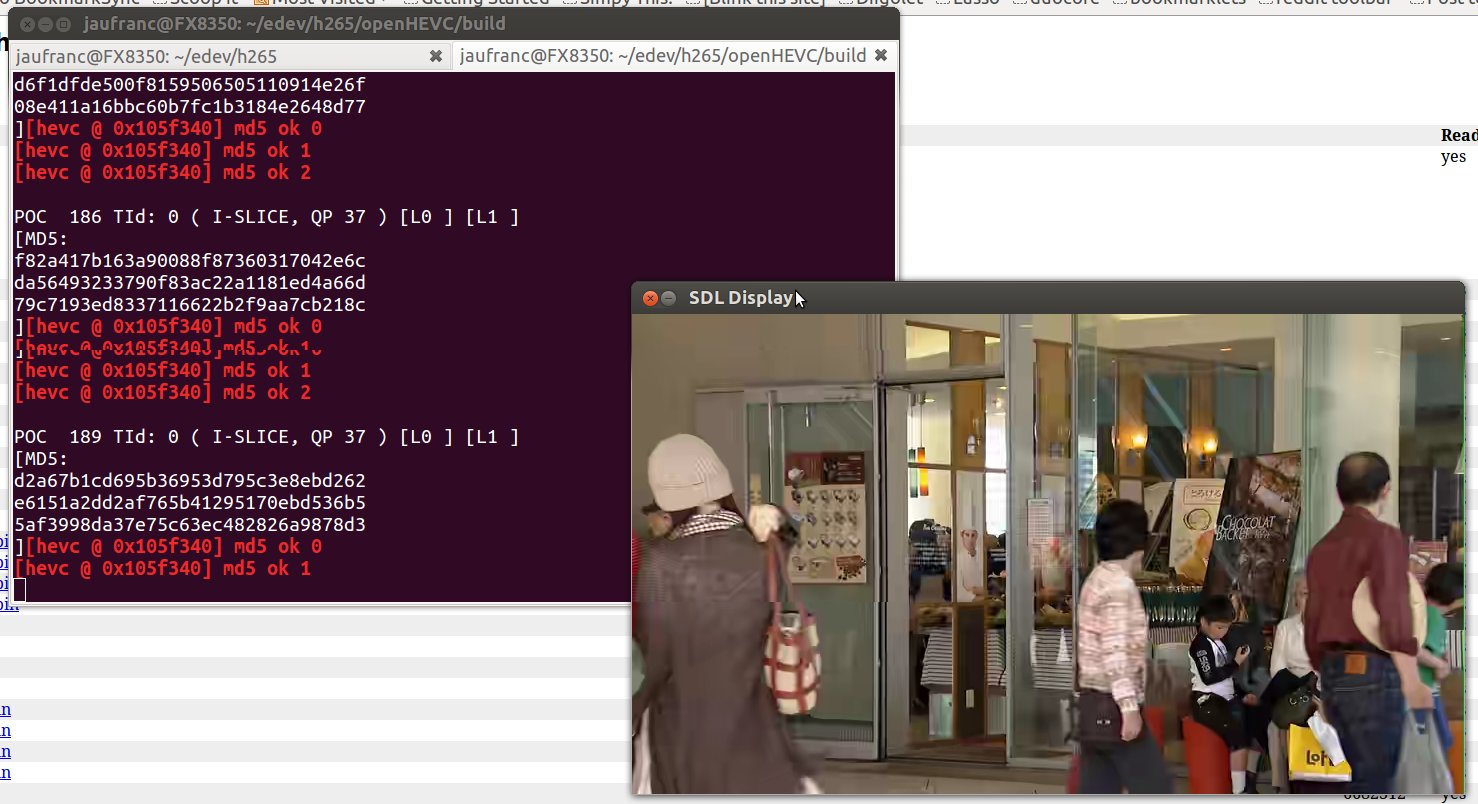I wrote an introduction to H.265 (aka HEVC) at the end of last year, including instructions showing how to encode videos to HEVC using the reference implementation. It worked but since it was not optimized for speed, it was extremely slow. Today I’ve stumbled across openHEVC, a open source compliant HEVC video decoder written in C, created as a fork of Libav. This is supposed to work pretty well as the implementation was used at Roland Garros Tennis tournament to playback an 720p50 HEVC stream transmitted over DVB-T2, IPTV, and MPEG DASH. Today I’ll mainly tried out the instructions provided on openHEVC github repo including: Build the source and playing a raw HEVC stream with hevc utility Build GPAC (open source multimedia framework), to get MP4Box, mp42ts, and MP4Client utilities. Import a raw HEVC stream into MP4 and TS containers, and play it back with GPAC tools. I’ve performed the […]
Xiph Daala Codec Aims to Better H.265/HEVC Video Codec
H.265 (aka HEVC) video codec will eventually supplement H.264 over the years as it offers better compression at the same bitrate, or better quality for the same compression ratio. There’s a already some experimental implementation that allows to (slowly) decode and encode H.265 on your PC, as well as some HEVC implementations optimized for ARM SoCs. At least two other codecs aim to compete against, and better, HEVC: Google VP9, and Daala codec (temporary codename) developed by Xiph.org, the open source community that brought Vorbis or Theora open source codecs to the world. The Xiph developers explains that next generation codecs such as VP9 and HEVC are incremental improvement of codec designs using DCT (Discrete Cosine Transform) that have been used for years, and they’ve decided to take a new approach with lapped transforms, a technique that is also used in audio codecs such as MP3 and Vorbis. Lots of […]
Ittiam HEVC Decoder To Provide H.265 Video Decoding for Existing ARM Cortex-A Devices
H.264 is now the favorite codec for many applications, and all ARM SoC providing multimedia capabilities support it. However, a new codec called H.265 (aka HEVC) is coming with twice the compression ratio with the same quality saving a lot of money for those who have to pay for the bandwidth. The transition between video codecs is normally a slow process, but as it happens you may wonder if you’ll be able to play H.265 videos on your existing ARM Cortex A9/A15 devices which do not support H.265 hardware video decoding. The answer appears to be “Yes You Can!”, as Ittiam Systems announced an HEVC decoder specifically designed for ARM Cortex A processors. More specifically their software decoder will support: ARMv7 Cores with NEON – Cortex A8, Cortex A5, Cortex A9, Cortex A15, Cortex A7 and the multi core variants Qualcomm Snapdragon APQ8064/MPQ8064 , MSM8960 Ittiam HEVC decoder mainly targets devices such […]
H.265/HEVC (High Efficiency Video Coding) Status and How-To Encode Videos to H.265
Now H.264 is the main standard used for video compression, and most devices that can support video playback feature an SoCs capable of H.264 hardware video decoding. Since 2004, however, work has been done to improve H.264, and a new standard called High Efficiency Video Coding (HEVC), also referred to as H.265, will eventually replace H.264, even though this will take a few more years to really gain traction. HEVC will be able to double the data compression ratio compared to H.264 with the same quality, or improve the quality using the same bitrate, and it can support 8K UHD (Ultra High Definition) with a resolution of 7680×4320 (4320p). This new video codec is a big deal for those who pay for video bandwidth (80% of internet traffic according to Ericsson), and it should also be welcomed by consumers, as it will magically double their storage device capacity, and they may […]






